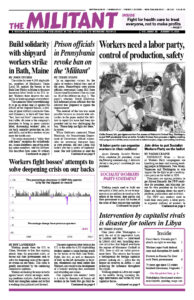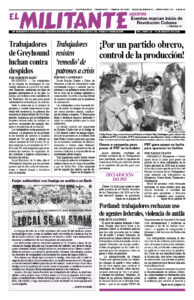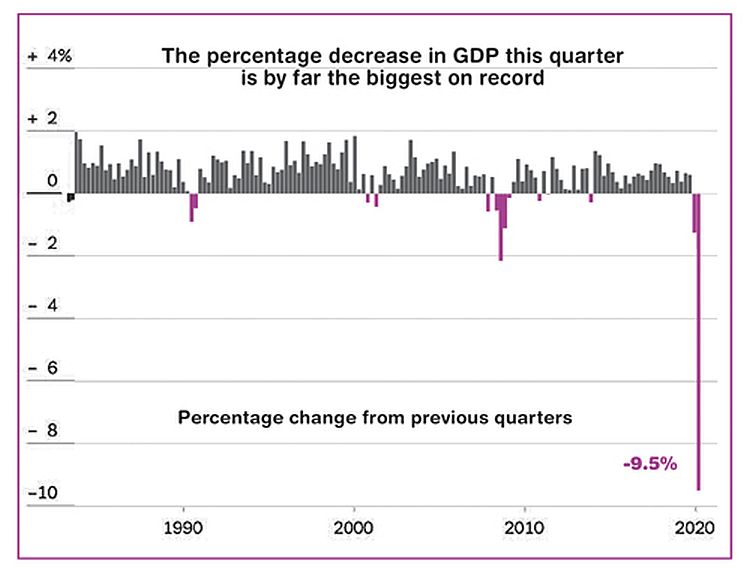Working people from the U.S. to China, Germany to Iran face ongoing attacks from the propertied rulers, as bosses and their governments seek to solve the deepening crisis of the capitalist system on our backs. This crisis is greatly exacerbated by the continuing coronavirus epidemic.
Workers are looking for ways to battle against bosses’ attacks on wages, working conditions and jobs. And for ways to build and strengthen unions and to find a working-class political road forward.
The most important labor battle in the U.S. is the strike by 4,300 shipbuilding workers against a union-busting attack by the bosses at the Bath Iron Works. Fights like this, as well as thousands of daily on-the-job skirmishes in factories, warehouses and retail outlets like Walmart, are crucial to the development of a broader working-class movement and rebuilding our unions.
One important new workers’ battle is a strike by thousands of Iranian oil workers in the South Pars gas field demanding unpaid wages and improvements in working conditions. It comes on top of a long strike at the Haft Tappeh sugar refinery and by workers at industrial facilities in the city of Arak.
The strike wave began July 28 after Ebrahim Arabzadeh, a contract worker at the Mahshahr petrochemical complex, died from exhaustion after being forced to work in blistering heat.
Within a few days, 10,000 contract workers were on strike. They are protesting low wages, the fact their jobs aren’t guaranteed and poor living conditions. They are demanding reduced work hours in temperatures over 120 degrees Fahrenheit. The strikers work for employment agencies in the world’s largest natural gas field. They say they will stay off work for all this 20-days-on work cycle.
The state-run oil and gas company controls all South Pars projects, but had sought foreign investment partners. French energy giant Total signed on to develop the fields in 2017 but pulled out to avoid sanctions on Iran imposed by Washington. The sanctions have seriously hit the Iranian rulers’ economy, but fall hardest on working people.
Conditions in the oil fields underscore the need for workers to fight to control production to defend their safety and health from the profit drive of the bosses.
“Iranian workers have proved time and again that no amount of repression will silence them,” said Kemal Ozkan, IndustriALL union federation assistant general secretary, supporting the oil workers strike.
Virus lockdowns extend slump
In response to the spread of coronavirus, capitalist bosses and their governments worldwide shut down production and trade, leading to the sharpest economic contraction in most countries since World War II. In the U.S. and Germany, the gross domestic product — the total of all production and service activity — contracted by 10% in the second quarter. Other European economies contracted more. Tens of millions of workers have been thrown out on the street.
The World Trade Organization expects global merchandise trade to fall between 13% and 32% in 2020.
The U.S. capitalist rulers, who preside over the world’s largest economy and strongest currency, stepped in to try and prevent the crisis from deepening — and to protect the interests of U.S. bosses and bankers. In March, as governments worldwide initiated shutdowns, the Federal Reserve Bank extended unprecedented loans to foreign central banks to help prevent a collapse of world markets.
This further increased the weight of the dollar as the world’s central currency and as a weapon of Washington’s foreign policy.
U.S. unemployment crisis grows
Applications for unemployment benefits, sorely needed by those thrown out of work, remain at high levels in the U.S. Some 1.43 million people applied in the week ending July 25. On Aug. 1 special “stimulus” $600 weekly payouts to workers who get unemployment benefits end. The Pandemic Unemployed Assistance program of weekly $600 payouts to self-employed, independent contractor and gig-economy workers also ran out. Special measures against evictions of workers who find it impossible to pay rent also expired.
Wherever lockdowns are relaxed, the bosses are taking steps to return to profitability by stepping up production with a leaner workforce toiling under meaner conditions — forcing fewer workers to work faster for less.
Expanding struggles by workers to meet these attacks are crucial. Every one deserves the broadest solidarity.


